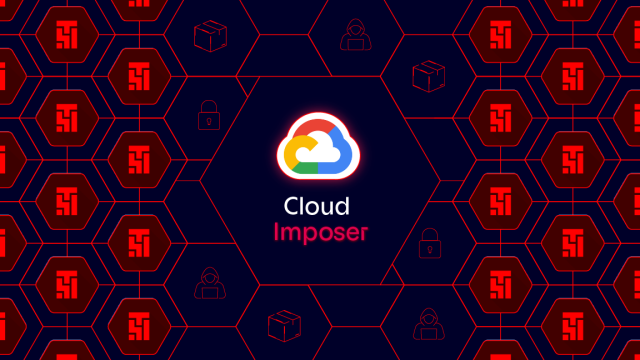Google Cloud Exploit: CloudImposer Vulnerability Exposed Millions of Servers
On September 16, 2024, Tenable Research disclosed a critical Remote Code Execution (RCE) vulnerability in Google Cloud Platform (GCP). Dubbed CloudImposer, the flaw allowed attackers to execute malicious code on potentially millions of Google servers

Introduction
On September 16, 2024, Tenable Research disclosed a critical Remote Code Execution (RCE) vulnerability in Google Cloud Platform (GCP). Dubbed CloudImposer, the flaw allowed attackers to execute malicious code on potentially millions of Google servers through a single compromised package. This vulnerability targeted the Cloud Composer orchestration tool and revealed concerning gaps in Google’s documentation that exposed users to supply chain attacks.
Report Overview
CloudImposer was uncovered during a routine security audit by Tenable, where researchers noticed troubling guidance in GCP’s documentation that could enable a supply chain attack known as dependency confusion. This specific attack leverages package management systems to inject malicious code into software by manipulating external dependencies. While dependency confusion was first identified in 2021, the threat remains dangerously underestimated, as even a leading cloud vendor like Google fell prey to this technique.
CloudImposer capitalized on how GCP services, including App Engine, Cloud Function, and Cloud Composer, handle package dependencies. Attackers were able to exploit the --extra-index-url argument in Python’s package installer, pip, to confuse the system into downloading malicious versions of legitimate packages. The vulnerability stemmed from GCP’s reliance on this argument to fetch both public and private packages, prioritizing the version with the highest number—whether from trusted or malicious sources.
In Tenable’s proof-of-concept (PoC), the malicious package—bearing the same name as Google’s internal package—successfully executed code on Google’s servers. Although Google swiftly blocked further attempts, the PoC demonstrated the potential for widespread exploitation.
Had the vulnerability been exploited in the wild, the consequences would have been catastrophic. Cloud Composer is widely used by GCP customers to manage data workflows. A single compromised package could have spread across thousands of Google Cloud environments, compromising both Google’s infrastructure and its clients’ systems. Tenable estimates that millions of users and organizations could have been impacted by this supply chain attack, highlighting the massive scale and far-reaching implications of cloud-based vulnerabilities.
Insights and Analysis
This research points to a critical oversight in how cloud providers secure their services. The attack showcases the risks of neglecting comprehensive package validation practices, particularly in the cloud, where the interconnected nature of services amplifies the effects of a successful breach. Both Google and the Python Software Foundation’s failure to properly mitigate this known risk underlines the need for greater awareness and proactive defenses against supply chain attacks.
Tenable's report suggests several key steps to mitigate future risks:
- Avoid
--extra-index-url: Cloud users should avoid this argument and instead use--index-urlto limit package searches to trusted repositories. - Regularly Monitor Package Sources: Cloud providers and customers alike must rigorously audit package installations and maintain strict control over private repositories.
- Leverage Artifact Registries: By using Google’s Artifact Registry with virtual repositories, organizations can more safely manage dependencies, preventing unauthorized packages from being installed.
CloudImposer serves as a stark reminder of the vulnerabilities lurking within even the most trusted cloud environments. With supply chain attacks on the rise, securing package management systems must be a priority for both cloud providers and customers alike. While Google has since patched the vulnerability and updated its documentation, the incident highlights the ongoing need for vigilance and robust security practices in the cloud.
Indicators of Compromise (IOCs)
| Indicator | Type | Description |
|---|---|---|
| No specific Indicators of Compromise (IOCs) were provided in the source material. |
MITRE ATT&CK Tactics and Techniques
| Tactic | Technique | ID | Description |
|---|---|---|---|
| Initial Access | Supply Chain Compromise | T1195.002 | CloudImposer allowed attackers to compromise GCP's software supply chain by exploiting dependency confusion. |
| Execution | Command and Scripting Interpreter | T1059.006 | Attackers used malicious Python packages to execute code on Google Cloud Composer instances. |
| Persistence | Implant Internal Script | T1059.003 | Malicious packages were able to persist in environments via Python's package management system. |
| Impact | Data Manipulation | T1565 | Execution of malicious code could lead to unauthorized manipulation of data within cloud services. |
References






Comments ()